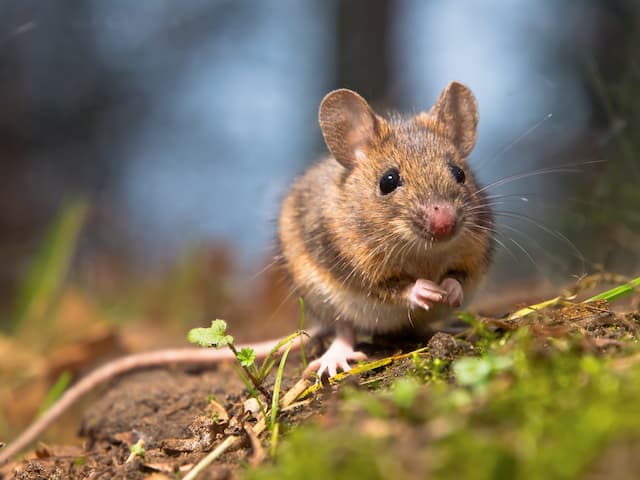As the sun sets and darkness settles over the globe, a new realm of activity begins to emerge within our homes. Among the shadows and calm, an uninvited guest—the house mouse—often takes centre stage. These nocturnal pests are masters of nocturnal behaviour, undertaking their clandestine activities in the dark. The complexity of their nighttime behaviour reveals an intriguing world of adaptation, survival, and ingenuity.
Mice (Mus musculus) have proven themselves to be among the most adept nocturnal animals. Their nocturnal behaviour is an evolutionary adaptation that reduces their vulnerability to predators and human activity. This adaptation has allowed them to flourish in close proximity to humans, frequently unnoticed until their presence becomes undeniable.
As the world around them settles down, mice begin their busy daily regimen. Their keen senses of scent, touch, and hearing guide them through our homes’ darkened passageways. Foraging for food is one of their primary activities, a behaviour that frequently leads them to kitchens, pantries, and food storage areas. Their dexterous paws and razor-sharp canines enable them to access even the most well-concealed morsels, from crumbs on the countertop to grains stored in the larder.
In addition to pursuing food, house mice engage in additional activities that contribute to their nocturnal annoyance. The common behaviour of gnawing is driven by the animals’ innate need to keep their continuously growing incisors under control. Unfortunately, this behaviour frequently extends to household materials, causing damage to furniture, insulation, and even electrical wiring. Their nesting instincts compel them to construct cozy shelters in quiet corners and secluded areas, typically with shredded paper, fabric, and other soft materials.
The nocturnal secretiveness of domestic mice makes their detection difficult. Homeowners may discover telltale indicators of their presence, such as droppings, gnaw marks, and chewed materials. These indications frequently lead to the conclusion that a nocturnal intruder has taken up residence in our dwellings.
Mice are nocturnal pests that require a multifaceted approach to control. Prevention is essential for reducing their activities. This involves securing points of entry, removing food sources, and maintaining appropriate sanitation practices. The storage of food in airtight containers and the prompt removal of crumbs can deter these pests from making nocturnal visits.
To effectively manage an existing infestation, it is prudent to seek out professional pest control services. Experts in pest control have the knowledge and equipment necessary to effectively address house rodent problems. They can identify entry points, implement targeted treatments, and advise on long-term prevention strategies to eradicate and keep away these nocturnal pests.
The nocturnal behaviour of house mice is conclusive evidence of their extraordinary adaptability and survival instincts. Their nocturnal activities, which are motivated by the need for safety and sustenance, can result in aggravating and harmful interactions with humans. Exploring the habits of these nocturnal pests emphasizes the significance of proactive prevention and effective pest control strategies for maintaining peaceful coexistence within our homes.
Affordable, accessible, and high-quality mouse removal services in Bowmanville. We remove mice from private and commercial properties with the help of our licensed and insured technicians that have years of experience.

